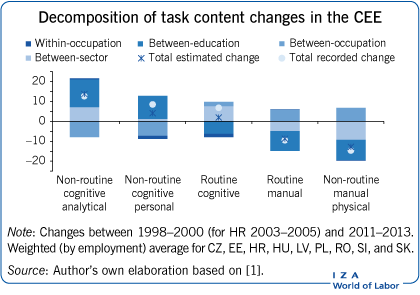
You should consider your qualifications and transferable skills when career changing. This includes degrees from universities and other skills. While some skills can be transferred easily to new positions, others may not. It is therefore important to differentiate between hard and soft skill sets. Hard skills, which are usually more tangible, are more likely that they will translate into the new position.
It is an important step in your professional career to change careers
Changes in careers can be exciting and fun for many people. However, it can also cause anxiety. Focusing on the positive aspects is the best way for you to stay positive. Find out why you are changing careers and what you love about the new career. Consider how long you've been thinking about making this change, and make sure your skills and qualifications match the new profession.
It is important to remember that changing your profession will have a major impact on your life. There may be times when you are uncomfortable. First, you need to be clear about your values. You shouldn't change your career if you don't feel passionate about what you do.

It can be very frightening.
For many, career shifting can be a difficult decision. It involves a complete overhaul of your current career and a fresh start. The process of changing careers can be overwhelming, but if done correctly, it can be a wonderful way to take control over your life.
Your fears are your first step toward career shift. Write down what you fear. Although it might take an hour, write down everything you fear. Then, take that time to think about what you'd do differently, and how you'd approach the new situation.
It is easier than changing your career.
Before you start a career change, you need to know your strengths as well as your weaknesses. This is key to a successful career change. You should write down your goals and make an action plan for achieving them. An action plan will help you make the right decisions. You can also consult a career counselor or mentor who has experience in your chosen field. These professionals will be able to guide you in planning your shift.
According to the Bureau of Labor Statistics, it is quite common for people to switch careers throughout their lives. One study revealed that the average worker moves between five and seven jobs before reaching retirement age. This trend is predicted to rise in coming decades. This is partly due a changing work environment. Many people now work part time, flexibly or from home.

It can increase your salary
Switching companies is one of the best ways increase your salary. Changing jobs can help you make up for lost time, and in some cases, a job switch can even result in a significant pay bump. The majority of places will not adjust your salary based upon the cost-of-living. This means that you have less chance of getting a salary increase within your organization than if looking for a better job. This is because your current employer knows you well and has a good idea of your value. Dealing with the same employer can prove difficult.
Additionally, a new job may give you additional responsibilities and industry experience that can help you further your career. Changes in career can offer benefits, such as increased salary. However, be sure to consider the risks and perks of a career switch before deciding to make a move.